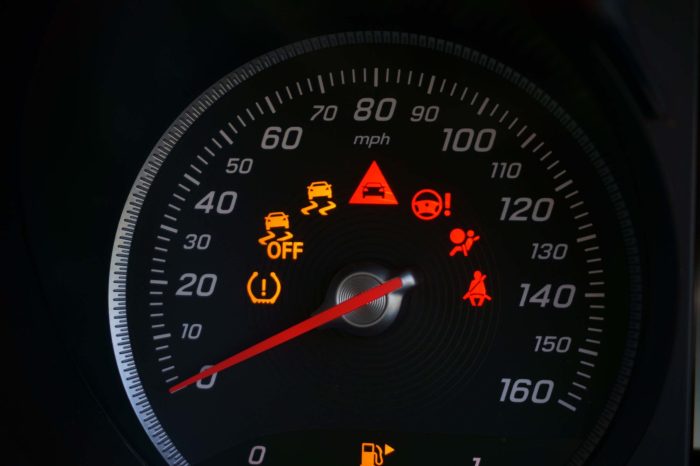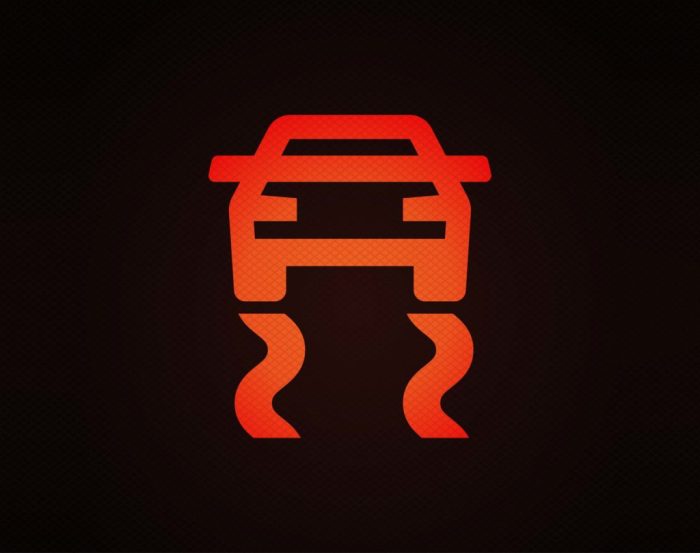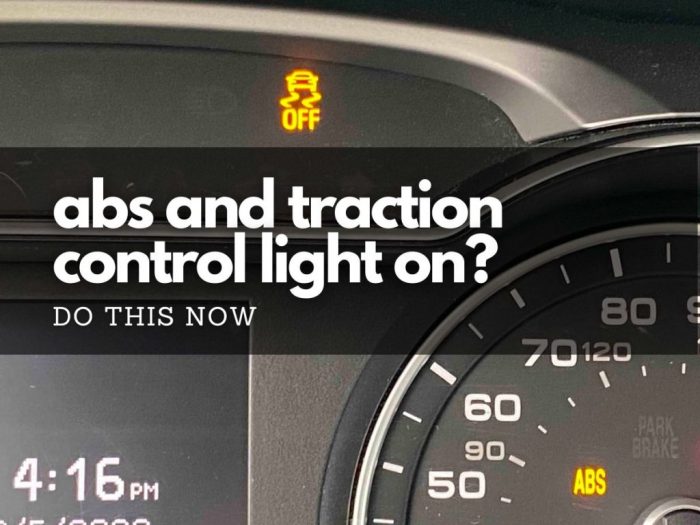Abs and traction control light on grinding noise – When the ABS (Anti-lock Braking System) and traction control lights illuminate simultaneously, accompanied by a grinding noise, it signals potential issues within the vehicle’s braking and drivetrain systems. Understanding the causes and troubleshooting procedures for these warning signs is crucial for ensuring vehicle safety and performance.
This comprehensive guide delves into the reasons behind ABS and traction control light illumination, explores common causes of grinding noises, and provides a step-by-step troubleshooting approach. By addressing these issues promptly, drivers can prevent further damage and maintain optimal vehicle functionality.
ABS and Traction Control Light Illumination

The simultaneous illumination of the ABS (anti-lock braking system) and traction control lights indicates potential issues within these systems. These lights serve as warnings that require immediate attention to prevent further complications.
Several factors can contribute to ABS system malfunctions. Faulty ABS sensors, responsible for monitoring wheel speed, can provide inaccurate signals to the control module, leading to system malfunction. Hydraulic problems, such as leaks or air in the system, can also disrupt the proper functioning of the ABS.
Traction control system malfunctions can arise due to defective wheel speed sensors or control module failures. The wheel speed sensors monitor individual wheel speeds and communicate with the control module to adjust engine power and braking to maintain traction.
Grinding Noise Diagnosis: Abs And Traction Control Light On Grinding Noise

Grinding noises in vehicles can originate from various sources, requiring careful diagnosis to identify the underlying cause.
Brake system issues are a common cause of grinding noises. Worn brake pads or rotors can create a grinding sound as they rub against each other. Insufficient brake pad material can lead to metal-on-metal contact, resulting in a distinctive grinding noise.
Driveline problems can also manifest as grinding noises. Worn universal joints, responsible for transmitting power from the transmission to the wheels, can develop excessive play, causing a grinding sound during acceleration or deceleration. Differential bearings, which support the differential gears, can also wear out over time, leading to grinding noises.
Suspension component failures can contribute to grinding sounds. Worn ball joints, which connect the suspension components to the wheels, can produce a grinding noise as they move.
Troubleshooting Procedures
Troubleshooting the ABS and traction control system involves a systematic approach to identify and resolve the issue.
Begin by inspecting the ABS sensors and wiring for damage or corrosion. Loose or damaged connections can disrupt signal transmission to the control module.
Next, test the ABS control module and hydraulic components. The control module can be diagnosed using a scan tool to identify any fault codes. Hydraulic components, such as the pump and solenoids, can be tested for proper operation.
For grinding noises, a step-by-step troubleshooting process is essential.
- Inspect brake pads for wear and replace if necessary.
- Resurface or replace rotors if they are warped or damaged.
- Examine universal joints for excessive play and replace if worn.
- Check differential bearings for wear and replace if needed.
- Inspect ball joints and bushings for wear or damage and replace as required.
Repair Considerations

Repairing ABS and traction control system failures requires specialized knowledge and equipment. Sensor replacement, module repair, or system overhauls may be necessary.
It is crucial to use high-quality replacement parts and follow manufacturer’s repair procedures to ensure the system’s proper functioning and safety.
For grinding noises, repairs vary depending on the source of the noise.
- Replace worn brake pads.
- Resurface or replace warped or damaged rotors.
- Replace worn universal joints.
- Replace differential bearings.
- Replace worn ball joints or bushings.
Commonly Asked Questions
What are the most common causes of ABS and traction control light illumination?
Faulty ABS sensors, hydraulic problems, and defective wheel speed sensors are common causes.
What are some potential causes of grinding noises in vehicles?
Worn brake pads, rotors, universal joints, differential bearings, and suspension components can all produce grinding sounds.
How can I troubleshoot grinding noises in my vehicle?
Inspect brake pads and rotors for wear, examine driveline components for damage, and check suspension components for loose or worn parts.